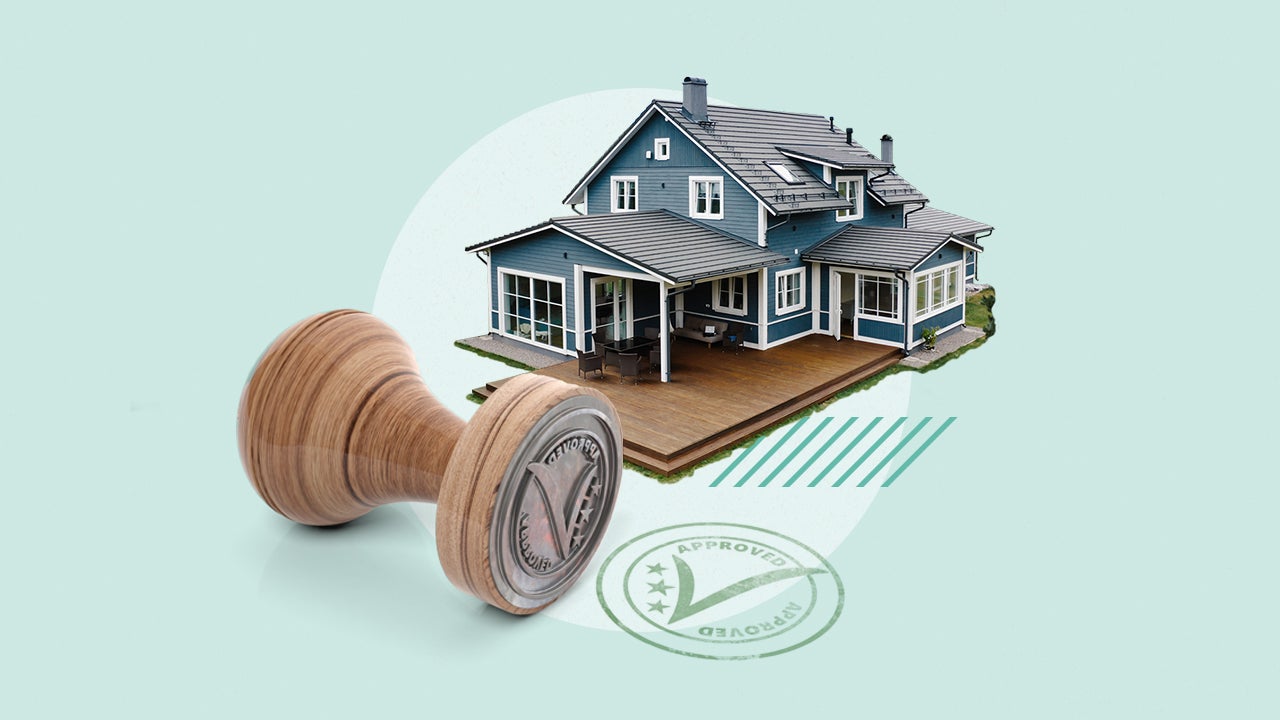Should you apply for a mortgage online?




Key takeaways
- Online-only mortgage applications can be convenient, but they might not be the best fit if you have complicated finances.
- While online mortgage lenders are generally safe, do your due diligence and protect your personal information when applying online.
- The closing — the final step in the mortgage process — usually still occurs in-person, even with online-only lenders.
Most lenders — even those with branches — offer online preapproval or loan applications, and close to three-quarters of borrowers begin the mortgage origination process online. Still, if you’re not sure that online is the way to go, here’s what to consider.
Should you apply for a mortgage online?
The process of getting a mortgage involves a lot of paperwork — physical or digital — and time. Completing the application online or with an online-only lender could speed it up, but it’s not for everyone. Here’s what to consider.
How complicated are your finances?
If you receive a steady paycheck from an employer and have excellent credit, you’ll likely sail through mortgage underwriting. An online application could save you time.
However, if you’re self-employed, have recently gone through a big financial change — a divorce or bankruptcy, for example — or don’t fit the standard applicant model in some other way, explaining your situation might be easier in-person with a loan officer.
Keep in mind: Even if you complete a mortgage application online, you’ll still interact with a loan officer at some point. They might reach out with follow-up questions, for instance, or request additional documentation. They’ll also help you finalize and close the loan.
How quickly do you need to close?
If you’re on a tight timeline, an online application with an online-only lender could help expedite things. Online-only lenders tend to have more sophisticated technology that can turn around a preapproval in minutes or hours and credit decisions within a day or two. That doesn’t mean brick-and-mortar lenders can’t do the same — but you’re more likely to encounter this speed with an online-only provider.
Have you ever done this before?
If you’re a first-time homebuyer, you might benefit from having someone walk you through the process in person.
Pros and cons of online-only mortgage applications
While almost all lenders let you apply online, some only let you apply online. Here are the benefits and drawbacks.
Pros of online-only mortgage applications
- Faster processing: Lenders focused on a high-tech application experience tend to offer faster processing times, handling loan applications 20 percent more quickly than other lenders, according to a report by the Federal Reserve Bank of New York. If your finances are straightforward, you’ll have a speedier turnaround.
- Convenience: Online mortgage applications typically let you upload documents — such as your latest bank statements, pay stubs and tax returns — to a secure website instead of needing to provide a hard copy to the loan officer. Some even automatically upload your documents if you provide your institutional login.
- Lower costs: Online mortgage lenders typically have lower overhead costs than brick-and-mortar lenders, which can translate to lower interest rates and closing costs for you.
Cons of online-only mortgage applications
- Less hands-on help: Because you’re applying online, you might not know who to contact with questions. You might find yourself on the phone — or worse, on hold — adding more time to the process.
- Potential for hiccups: An online application is designed to speed up the process, but if your situation is outside the norm — maybe you’re self-employed, your credit history has some dings or your debt-to-income (DTI) ratio is high — it could take longer to process your application.
- Fees: Despite their lower overhead, online-only lenders often still charge fees that will appear in your closing costs.
Are online-only mortgage lenders safe?
Most online-only mortgage lenders are legitimate. Whether online or not, all mortgage lenders are required to comply with federal regulations for data protection and privacy. Online lenders typically use secure websites for applications and document uploads. These portals usually require a password, and sometimes two-step authentication for an additional layer of security.
That said, there’s always some risk if you’re submitting personal information online. Before doing business with the lender, take these steps to help protect yourself:
- Check the Better Business Bureau or your state’s banking department for complaints.
- Ask about your lender’s security practices. If a lender is legitimate, these should be well-documented and furnished to you without issue.
- Avoid sending documents with personal information via email unless it’s encrypted or over a public Wi-Fi network unless you’re using a virtual private network (VPN).
- Be on guard for phishing. If your lender emails you a secure link where you can upload documents, call your loan officer to confirm the email is legitimate. You can also hover your cursor over the sender’s email address and any links (do not click them!) to see if you recognize them. Be sure to submit personal information using only the link provided, not by replying to the email itself.
- Look at the lender’s online customer reviews — but be wary of fake testimonials, which often have generic language and perfect punctuation and spelling. They may also appear overly positive.
How to get a mortgage online
Applying for a mortgage online is similar to the traditional application process. The key difference is that you’re doing it digitally, not in person or via the mail. You’ll need to:
1. Shop around
Hopefully your research has helped you narrow down your list of online lenders. Gather your financial information — including bank statements, pay stubs and tax returns — and apply for preapproval with at least three.
Many online lenders offer sample or personalized rates on their websites, which can also help you decide. Keep in mind that rates change daily, and applying for preapproval does involve a hard pull on your credit file. Time your applications as close together as possible for the most accurate comparison and the least credit damage.
2. Review the loan estimates
A loan estimate is a document that details your rate quote and other loan information based on your preapproval or loan application. It’s not a final offer, however. You’ll need to submit documents and lock in your rate for that to happen. Still, the loan estimate shows the costs of each offer so you can choose the right one for you.
3. Choose a lender
Compare your options. Consider whether the lender charges an origination fee, whether you’ve applied discount points to the offer and how much these expenses could add to your closing costs.
In addition, keep an eye out for fees you don’t understand, such as an “email fee” or “miscellaneous fee.” Ask for clarification and whether these fees may be eliminated.
4. Submit documents
After settling on a lender, you’ll officially apply and proceed to the underwriting process. Try to complete any requests as quickly as possible to avoid delays. The same goes for documents you’ll be asked to e-sign — though you should still read them carefully to make sure you understand what you’re signing.
5. Close the loan
Once you’ve been approved and cleared to close, you’ll receive your final disclosures, which you’ll review and sign. When you get the closing disclosure, compare it to your initial loan estimate to ensure there aren’t any major cost changes. If there are, ask your lender for clarification. You’ll have at least three business days to review this document, so don’t feel pressured to sign right away.
The closing process will likely be the one exception to your “online-only” experience. Even most digital lenders still require an in-person closing process with a notary to get the keys to your new home.
FAQ
Why we ask for feedback Your feedback helps us improve our content and services. It takes less than a minute to complete.
Your responses are anonymous and will only be used for improving our website.
You may also like

How to get preapproved for a mortgage

Best online mortgage lenders in 2025


